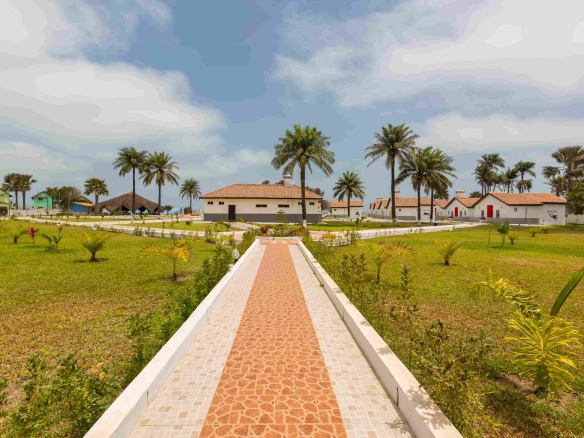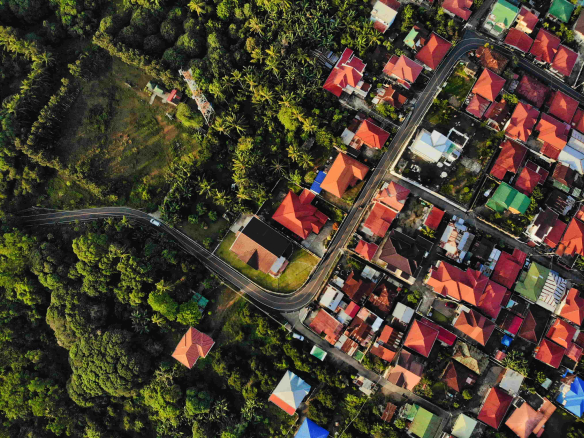Buying real estate in Sri Lanka can be thrilling, but understanding how to evaluate property value is crucial for making a sound investment. This guide covers essential factors like location, amenities, property condition, and market trends so you can avoid overpaying or missing great opportunities. Using insights from Excel Property listings, we’ll show you practical ways to assess any property’s worth confidently.
Why It’s Important to Evaluate Property Value
Knowing how to evaluate property value helps you negotiate smarter and make informed financial decisions. A proper valuation ensures you don’t overpay, allows you to budget accurately, and safeguards your investment whether you’re buying or selling.
At Excel Property, we believe buyers who understand real value make better choices and secure long-term returns. use Top 2025 Real Estate Trends Shaping the Housing Market for more.
The Benefits of Accurate Evaluation
An accurate valuation shields you from financial risks. By assessing the market value correctly, you can avoid inflated prices and spot undervalued properties that offer great returns. You’ll also be better equipped to plan mortgage terms and long-term financial strategies.
For additional insights, visit for current real estate data in Sri Lanka.
Key Factors to Evaluate Property Value
Several elements directly influence property prices. Considering these factors will help you evaluate property value more precisely and make confident decisions.
Location Matters Most
The location significantly drives real estate pricing. Properties in high-demand areas like Colombo 7, Dehiwala, or Galle often command premium prices due to proximity to schools, offices, and entertainment hubs. For instance, our Colombo 7 apartment listing is valued higher because of its central location and access to key amenities.
Factors to check:
-
Amenities: Hospitals, schools, shopping centers, and parks nearby.
-
Accessibility: Good roads and public transport improve market value.
-
Neighborhood Appeal: Safe, vibrant areas increase property demand.
Size, Condition, and Features
The size and physical state of a property heavily impact value. Larger plots and well-maintained homes or buildings are worth significantly more.
For example, a spacious Kandy house listed on Excel Property earns a higher valuation due to its upgraded interiors and modern fittings.
Key elements to review:
-
Square Footage: Larger homes command higher prices.
-
Age and Upgrades: Newer or recently renovated properties are more valuable.
-
Unique Features: Gardens, pools, or sea views can increase market appeal.
Market Trends and Economy
Economic shifts and real estate demand cycles also influence property value. Understanding these trends ensures you evaluate property value in line with the market.
-
Demand vs. Supply: High demand can spike property prices.
-
Interest Rates: Lower borrowing rates often raise property demand.
-
Tourism Growth: Coastal hotspots like Galle and Negombo are gaining traction due to rising tourist activity.
Methods to Evaluate Property Value
Using the right valuation methods gives you a well-rounded estimate. Here are the top approaches used by property professionals.
Comparative Market Analysis (CMA)
CMA compares the property in question to recently sold, similar properties nearby. For example, a Negombo beachfront villa listed on our site was valued by referencing comparable coastal sales.
Steps to do CMA:
-
Identify recently sold, similar properties.
-
Compare size, condition, and special features.
-
Adjust the figures to reflect unique differences.
Income Approach for Rentals
For rental or investment properties, this approach estimates value based on income potential. A Colombo commercial space on our platform was appraised using this method due to its consistent rental income stream.
Calculation basics:
-
Estimate annual rental revenue.
-
Subtract operating expenses.
-
Apply a capitalization rate to determine value.
Cost Approach for New Builds
Ideal for unique or newly built properties, this method estimates the cost of rebuilding the property from scratch.
Steps include:
-
Determine land value.
-
Add construction and replacement costs.
-
Subtract depreciation due to wear or age.
Beginner’s Guide to Rental Investment Success
Practical Tips to Evaluate Property Value
Beyond valuation methods, these tips help ensure accuracy and confidence:
-
Inspect the Property: Always visit in person to check layout, condition, and surroundings.
-
Research Local Sales: Compare market data using LankaPropertyWeb alongside Excel Property listings.
-
Hire a Professional Valuer: Chartered valuers provide unbiased, data-driven assessments. Check KPMG Sri Lanka’s real estate services.
-
Understand Zoning Laws: Commercial zoning or future development projects can significantly raise a property’s value.
Using Excel Property to Evaluate Property Value
Our listings cover properties across Sri Lanka, including Colombo condos, Kandy houses, and Galle villas. Each listing includes size, amenities, and market insights, allowing you to compare and evaluate property value effectively.
You can:
-
Explore property trends through updated pricing data.
-
Contact our experts for personalized valuation advice.
-
Compare similar listings to identify fair market pricing.
Common Mistakes to Avoid
When you evaluate property value, steer clear of these common errors:
-
Ignoring Hidden Costs: Factor in repairs or upgrades.
-
Over-relying on Online Tools: Use them as a guide, not the final word.
-
Neglecting Future Growth: Properties near planned infrastructure like highways can appreciate significantly.
Confidently Evaluate Property Value
Learning how to evaluate property value in Sri Lanka helps you avoid costly mistakes and secure the best deals. By assessing location, size, condition, and market dynamics, you can make informed, profitable decisions.
Start your property search with Excel Property today and take the first step toward buying with confidence. an additional use the Sri Lanka Property: Investor Guide for Foreign Buyers.





Join The Discussion